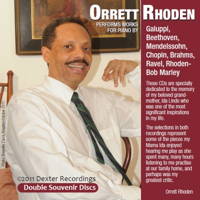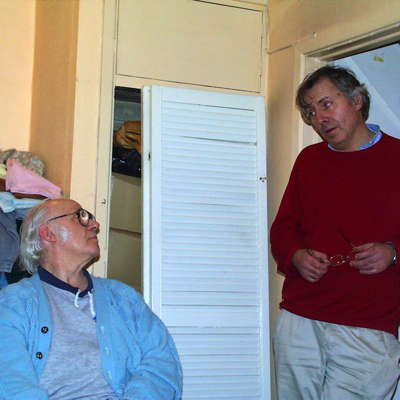 SPONSORED: CD Spotlight. Most Remarkable - Jamaican pianist Orrett Rhoden, heard by Bill Newman.
SPONSORED: CD Spotlight. Most Remarkable - Jamaican pianist Orrett Rhoden, heard by Bill Newman.
All sponsored features >>
Charles Avison
'His writing for the harpsichord is both brilliant and sensitive ...' - Robert Anderson
The English composer, conductor and organist Charles Avison was baptised on 16 February 1709 at St John's Church, Newcastle. He studied in London with Francesco Geminiani, continuing with Geminiani's Italian style of composition and, in particular, modelling concerti grossi on sonatas by earlier composers.
Avison became organist of both St John's Church and St Nicholas' Church, both in Newcastle, during 1736.
From 1738, he was music director of the Newcastle Musical Society, but his name is mostly known for his 1752 Essay on Musical Expression, in which he criticised the much-admired George Frideric Handel, suggesting that Geminiani and Marcello were better composers.
Avison died in Newcastle on 10 May 1770, aged fifty-nine, after being caught out in a blizzard.
A selection of articles about Charles Avison
CD Spotlight. A Splendid Compendium - Iberian concertos and sonatas, recommended by Gerald Fenech. '... finely and eloquently played by an ensemble that is passionately committed to creating a sound world that never ages.'
CD Spotlight. Chromatic Daring - Trio and keyboard sonatas by Charles Avison, heard by Robert Anderson. '... a eupeptic sense of well-being ...'
CD Spotlight. Firstrate Ensemble - Accompanied harpsichord sonatas by Charles Avison, recommended by Robert Anderson. '... both brilliant and sensitive ...'
CD Spotlight. Bold and Inventive - Charles Avison's reworkings of Scarlatti, enjoyed by Robert Anderson. 'Avison's deployment of massed strings is wonderfully effective ...'


